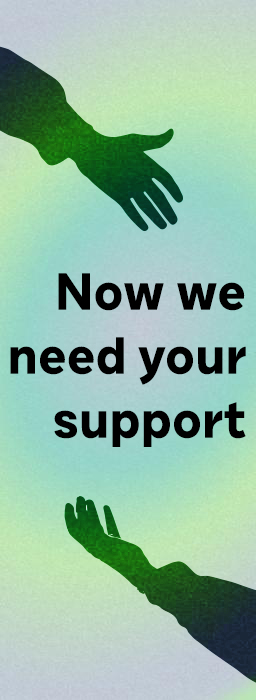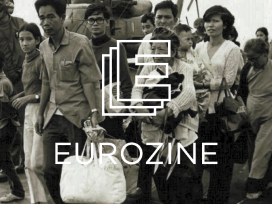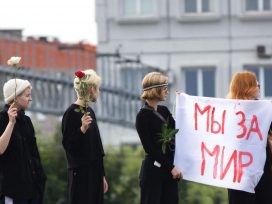Every so often an article gets under your skin. The experience is not quite the same as having your assumptions challenged by a strong argument, or by new knowledge that you may or may not retain. Reading it, one is both exhilarated and unsettled. It is something that cannot be ‘unread’.
This, at any rate, was my feeling after finishing Achille Mbembe’s article on the global dialectic of digitization and borderization, first published in the December 2018 issue of Esprit and now published in Eurozine in English translation. Take this passage, for example:
‘We see less and less of what is there for us to see and more and more of what we desperately want to see, even though what we want to see does not correspond to any original reality. Perhaps now more than ever, other people can stand before us as a concrete, tangible and physical presence and yet be no more than a spectral absence, an equally concrete, almost phenomenal void. This is what happens to migrants, refugees and asylum seekers.’
The necessity of a reality that we would rather not encounter is at the core of Richard Sennett’s concept of the ‘open city’. In an article based on his 2018 Democracy Lecture, hosted by Blätter für deutsche und internationale Politik, the sociologist and urbanist makes a striking comment: ‘a city should not be user-friendly’.
This may seem counter-intuitive: what could possibly be wrong with good city planning? Yet Sennett’s point goes further. ‘Closure is a way to build yourself out of a problem’, he argues. An ideology of convenience leads to social segregation and produces dull conformity with a capitalist economy geared towards our natural tendency to reduce complexity.
A final highlight of the last two weeks is Adam Tooze’s account of the emergence, a decade ago, of the dogma of austerity from the ruins of the global financial system. Perhaps the most significant fact Tooze presents: nowhere was the fiscal screw turned more zealously than in Europe. The article is an excerpt from his 2018 book Crashed and has been provided by the journal Vikerkaar, where it was published in Estonian translation.
Finally, you will notice that we have updated the website to give greater emphasis to our content and the journals behind it. We have also improved the search function in order to provide better access to the Eurozine archive. User-friendliness in the positive sense, we hope.

Simon Garnett
Editor
This editorial is part of our 4/2019 newsletter. Subscribe here to get the bi-weekly updates about latest publications and news on partner journals.








